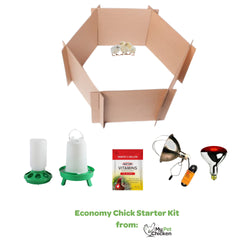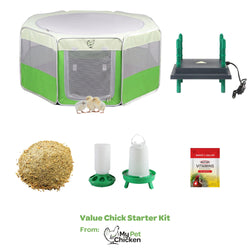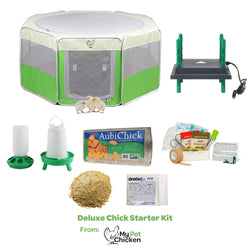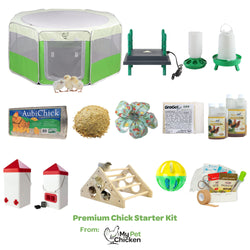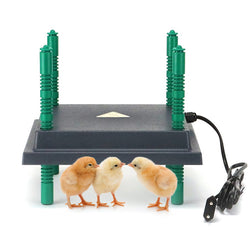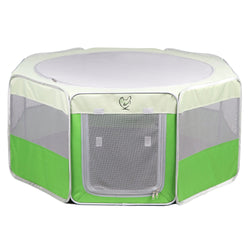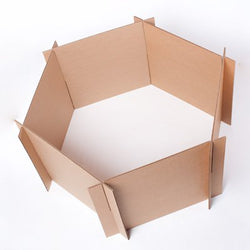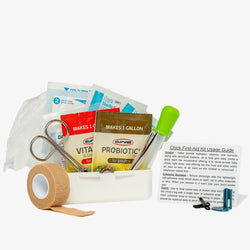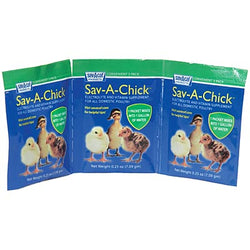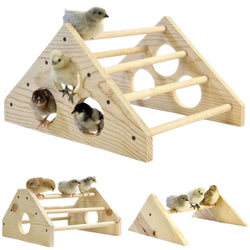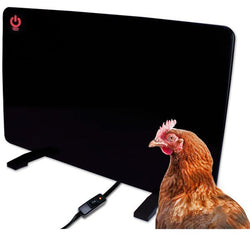6 Most Important Rules for Home Hatching
Back to blog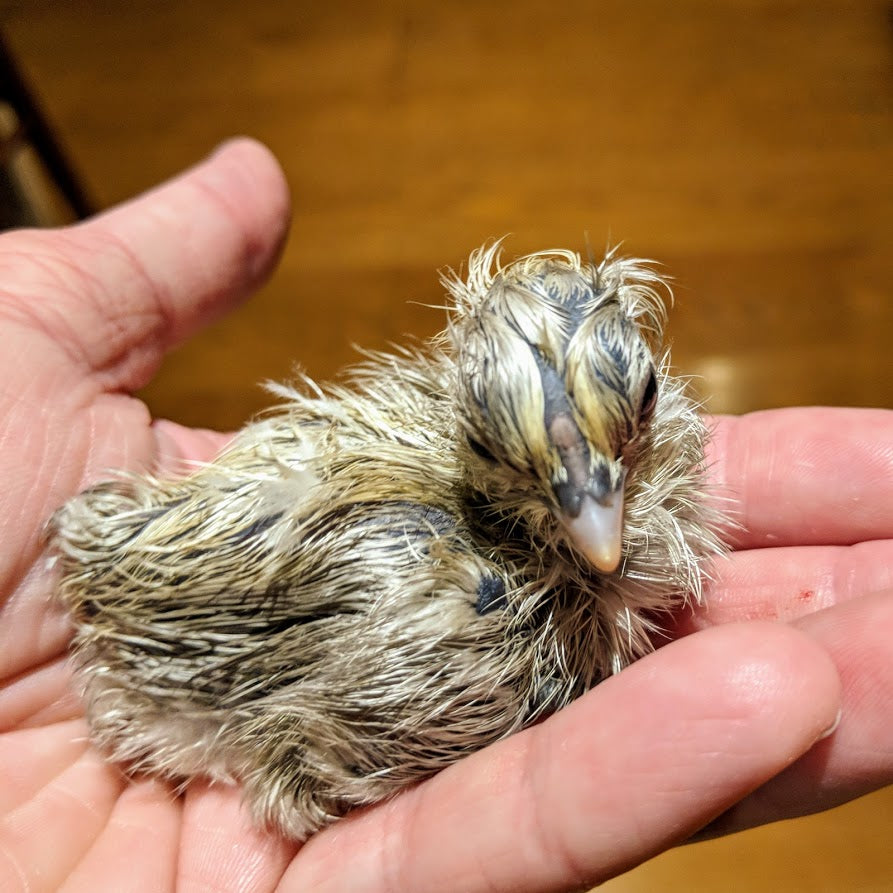
Home hatching projects can be a great project to enjoy with your family. There are many things you will want to consider BEFORE starting up your incubator, though... and if you've never hatched before, there are some things you may not think of. If your vision of home hatching consists solely of how cool it will be to have baby chicks in the house... well, take a step back and consider these six issues first.
Hatching baby chicks shouldn't just be an exercise in biology. It can also be an exercise in problem solving, thinking ahead, taking responsibility, accepting disappointment and making hard choices. After all, a hatching project doesn't begin at incubation, it begins long before when you start taking responsible steps to care for the living creatures you are hatching---they are totally dependent on you to provide them care. Just like you wouldn't have a "birth project" with a pregnant dog without making responsible arrangements for any puppies, you don't want to start a hatching project without making responsible arrangements for the baby chicks . If you can teach your kids about responsibility in the process, it's still a successful hatching project in our book, even if you don't hatch a single solitary egg.
Rule 1: Be educated about home incubation
Incubating chicks in a home incubator is often more challenging than humans expect. Aside from shipping issues, chicks that are not incubated properly (even when temperatures and/or humidity were very slightly off) can die, or be hatched ill or deformed. Especially where you're using the inexpensive styrofoam home incubators requiring your time and attention to keep the temperature and humidity at the right levels, or requiring you to manually turn the eggs, even a long day away from home where the humidity has dropped or the eggs don't get turned on schedule can cause problems down the line. So consider: do you have the time (or the equipment) to make sure incubation goes smoothly? If you have chickens already, having a broody hen hatch your eggs can solve some of these problems. If you lose power, your hen doesn't go out like your incubator does! The temperature and humidity will always be right in a hen's nest--you won't need to turn her up or down! Your hen will turn the eggs as needed, without any effort from you. However, having a broody to hatch your eggs presents other issues. For instance, it's safest to give her a place apart from the rest of the flock to hatch. The reason is that other hens may try to lay in your broody's nest---any squabbling over the nest means your eggs could get broken! And sometimes other hens in the flock can try to attack new hatchlings. Of course, old-time farmers didn't bother with broody hutches or coops... but they also viewed losing a few as par for the course. If you're planning on a microflock of 3 or 5 chickens, you're probably not wanting to lose any, right? Our free guide to incubation and hatching is full of tons of useful, how-to information. Even if you've hatched eggs before, it's worth a look over---you may learn something new!Rule 2: Make sure everyone knows the rules of incubation!
Be sure to let your kids know about how delicate an operation incubation can be. Some kids are (understandably!) so excited they want to lift the incubator lid and handle the eggs. Unless you tell them, they may not understand that letting out heat and humidity so frequently can cause the developing chicks to die, and they may not understand how sensitive some incubator thermostats can be. [caption id="attachment_6487" align="alignnone" width="540"] Kids can be tender, too, if you take the time to help them learn why they must be gentle![/caption] A very small adjustment made by a well meaning child may send temperatures skyrocketing to 120 or more, way too hot. It can be very disappointing to get a bad hatch rate---and doubly so if you have children. No one wants to see their children disappointed! So be sure to prepare them to understand both the best case scenario and the worst case scenario.
Kids can be tender, too, if you take the time to help them learn why they must be gentle![/caption] A very small adjustment made by a well meaning child may send temperatures skyrocketing to 120 or more, way too hot. It can be very disappointing to get a bad hatch rate---and doubly so if you have children. No one wants to see their children disappointed! So be sure to prepare them to understand both the best case scenario and the worst case scenario.
Rule 3: Don't count your chicks before they're hatched!
It can be difficult to predict how many chicks will hatch out of your eggs. If something goes wrong---if the temperature is off even by a degree, if the eggs aren't turned properly, if there is a power outage, if the lid of the incubator is lifted too often, if the eggs are handled by dirty hands, or even if the eggs just got shaken too much during shipping---your hatch rate will drop. If you're buying shipped eggs, the average hatch rate is about 50%. That's just the average, though! That means sometimes you will have a higher hatch rate, and sometimes a lower one. It's unfortunate, but when your shipped eggs had a rough trip to you---bumpy roads, icy warehouses, sweltering vehicles, air pressure changes and turbulence---it is quite possible to do everything right and still not have any chicks hatch. Read more about that in our free guide to incubation and hatching. Then consider: Are you ready for those possibilities? What if you get only 20% of your eggs to hatch, and three quarters are male--do you have a plan for that contingency?Rule 4: Be prepared for Mother Nature's curve balls!
If all your eggs hatch, be prepared for that, too. If you don't have space to keep everyone, you'll have to be prepared with adopters. There are many ways to find someone to adopt any extra chickens, including local farmers, posting ads at a local feed store, contacting your local 4H club, placing ads in the local paper, or even simply contacting a friend you know who keeps chickens. But consider: can you house everyone until then? Once your contingency adoption arrangements have been made, but before you proceed with a purchase, you should understand that when you hatch babies at home, they will be a mix of males and females. Typically, they hatch out in ratios of about 50% males and 50% females, but that is not a guaranteed ratio! And with the exception of a few breeds, you won't be able to tell who is male and who is female until they're about 12 weeks old: How can I tell if my juvenile bird is a rooster? Because you can't control exactly how many will hatch and you won't know how many will be which sex, you will not be able to promise your adopter an exact number of hens, roosters or even an exact number of birds. We think this is Mother Nature's way of reminding us to be flexible... or maybe she's just a prankster. Either way, it's omething you'll want to understand before you start home hatching.Rule 5: Be aware of the "teaching moments" of home hatching !
If you take the responsibility of home hatching seriously, you can have some great teaching moments with your children, especially if you include them in the process of getting prepared with contingency adopters. You can teach them about the responsibility you have to any baby chicks you bring into the world---and that's a great lesson. Keep it appropriate to their age level. Younger kids can simply observe and understand the process: "We're trying to make sure all the baby chicks will have homes." They see you as a role model---be sure that they see the person you want them to be! You can talk to them about care: how the babies will depend on you for food and water, why clean bedding is important, and so on. Older kids may not think of all the potential issues. To help them think critically about the process, you can ask them leading questions, and help them come up with good solutions.- How can we find out about the special care the baby chicks will need?
- If all our eggs hatch, how many extras will we have? What should we do with them?
- Where should we look to find good homes for any extra chicks we hatch?
- We've checked with farm A and B, but they aren't interested. What's our next step?
- How big do we expect our chicks to be be the time our adopters are ready to take them? Do we have room to keep them that long?
- How much space do we need for our brooder if we want about 2 square feet for each chick?
- How do we measure the temperature in the brooder?
- Why will it be important to wash our hands after handling the chicks?
